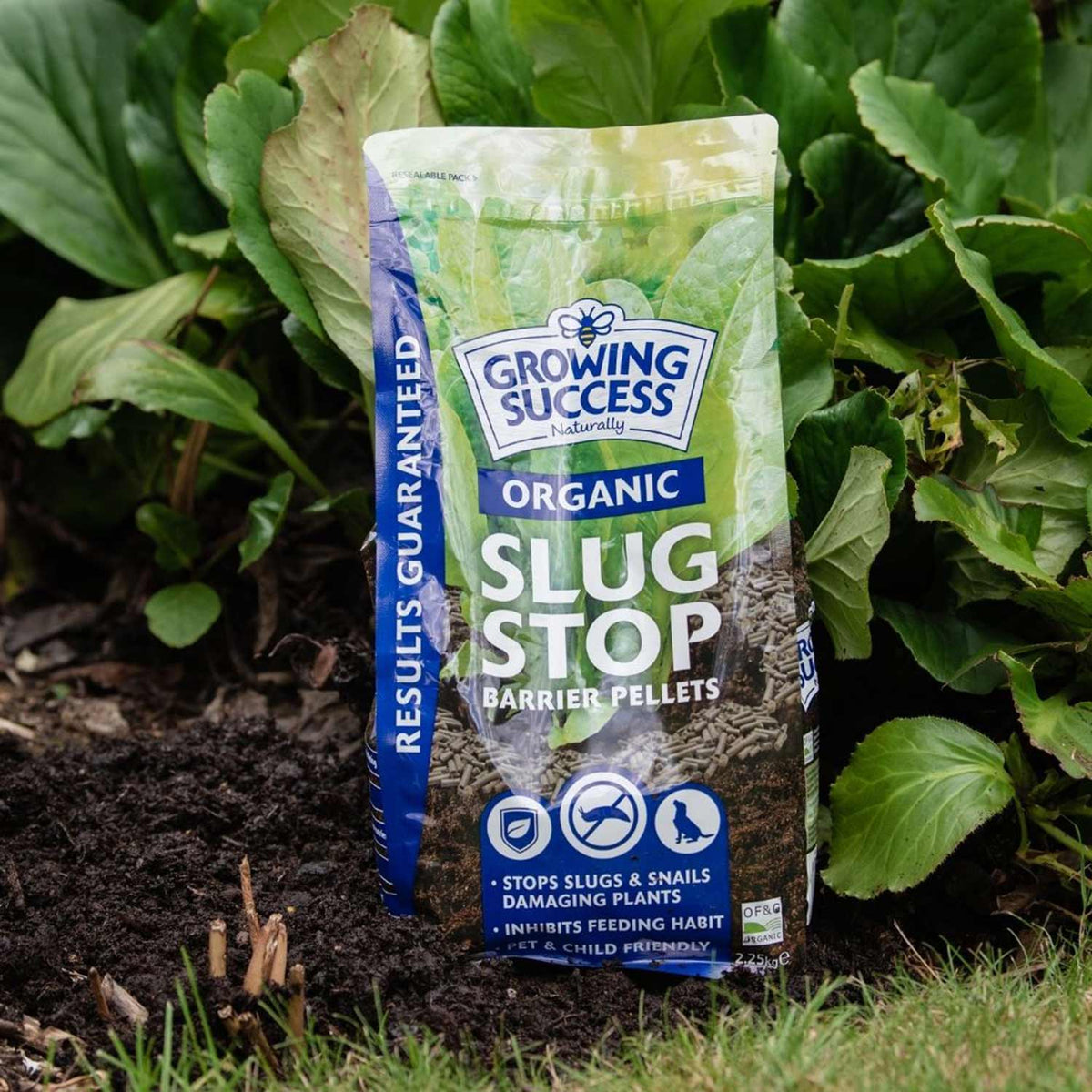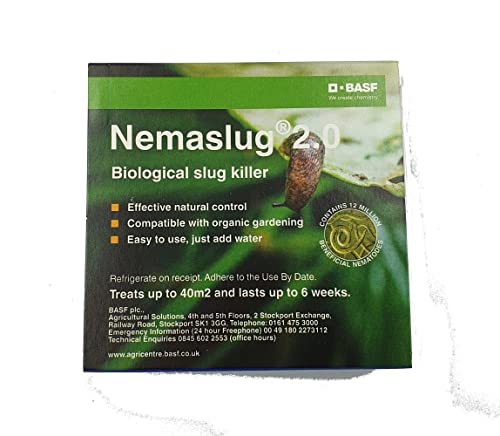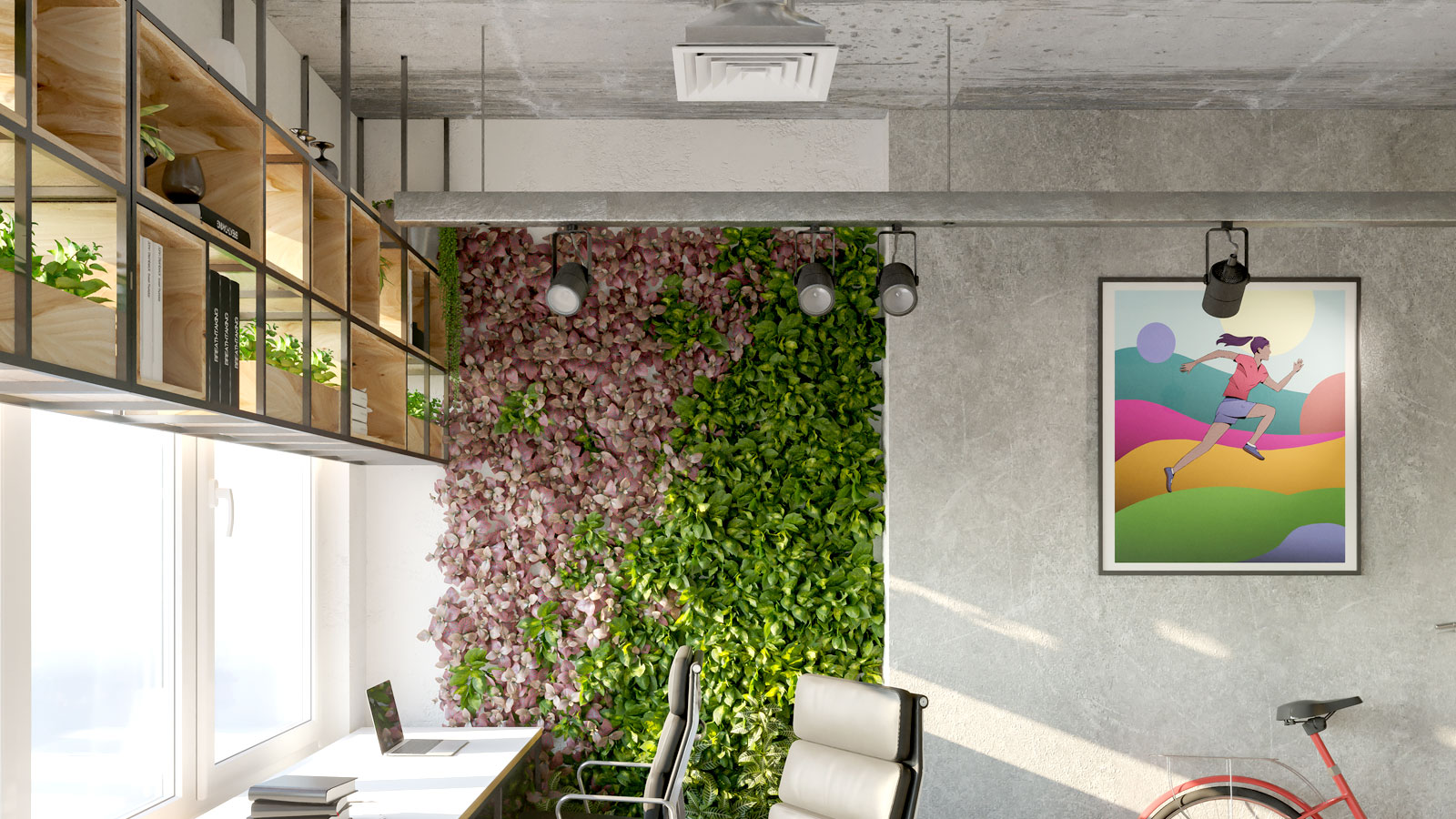How to get rid of slugs in the garden – the latest methods recommended by garden and pest control experts, including humane options
There are slug and snail deterrents that are proven to work, without damaging wildlife or harming your plants
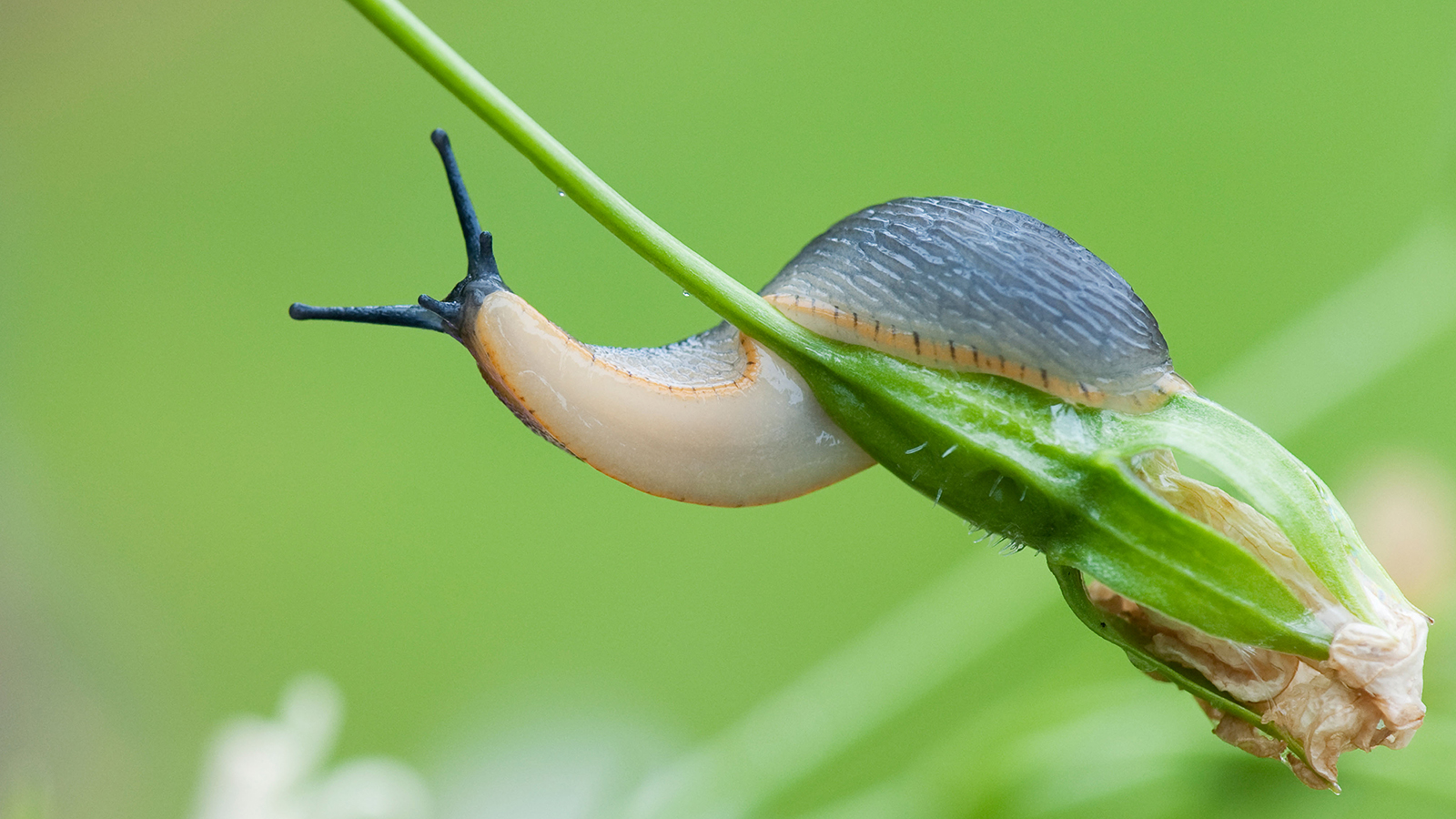
The growing season has really come to life by summertime, which is a great time of year for our gardens, but with vegetable patches and flower beds brimming with glorious plants, slugs and snails come out to reap the rewards of your hard work.
Periods of wet weather spell even more good news for slugs and disaster for your garden landscaping. "These slimy creatures thrive in moist environments and can quickly multiply, resulting in significant damage to plants and crops. Slugs will eat holes in leaves and stems as well as flowers, tubers, and bulbs," says Rob Clarke, technical manager at Growing Success, Westland.
"During wet weather, which we’ve had plenty of this year, slugs tend to emerge from their hiding places in search of food and moisture. They are most active at night and can easily travel across wet soil and plants, using their slimy mucus to move quickly and efficiently," says Rob.
John Stewart, from sustainable pest prevention specialist Pelsis comments: “Slugs can wreak havoc in any garden, particularly to hostas, bedding plants and vegetables. With the ban on conventional slug pellets, gardeners are seeking safer, friendlier methods to deter these slimy critters."
8 expert methods for deterring slugs in the garden
Whether you prefer organic approaches, biological controls or something in between, the most common methods for how to get rid of slugs in the garden are listed below.
1. Put copper tape around your plants
Adding copper tape to the top of plant pots and garden edging is an easy first step in deterring slugs and snails. "The copper deters the pests by giving them a very small electrostatic shock, which won’t cause them any serious harm or long-term damage, but will be enough to stop them from attacking your plants," explains John Stewart.
"In terms of aesthetics, this is an exceptionally subtle solution that will go largely unnoticed. The robust nature of the copper tape not only ensures its durability but also allows it to withstand the elements," says John.
"Simply wrap the adhesive tape around the rim of the pot for a great child and pet-friendly way to prevent slug and snail damage to your plants," adds Rob Clarke.
Shop slug prevention products
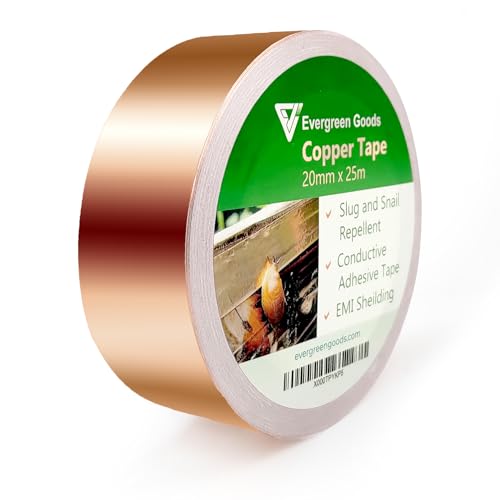
This is a self adhesive tape which can be applied directly to the edges of your pots. Laregely humane, in that it doesn't kill or cause lasting harm to slugs however slugs and snails will experience a mild electric shock.
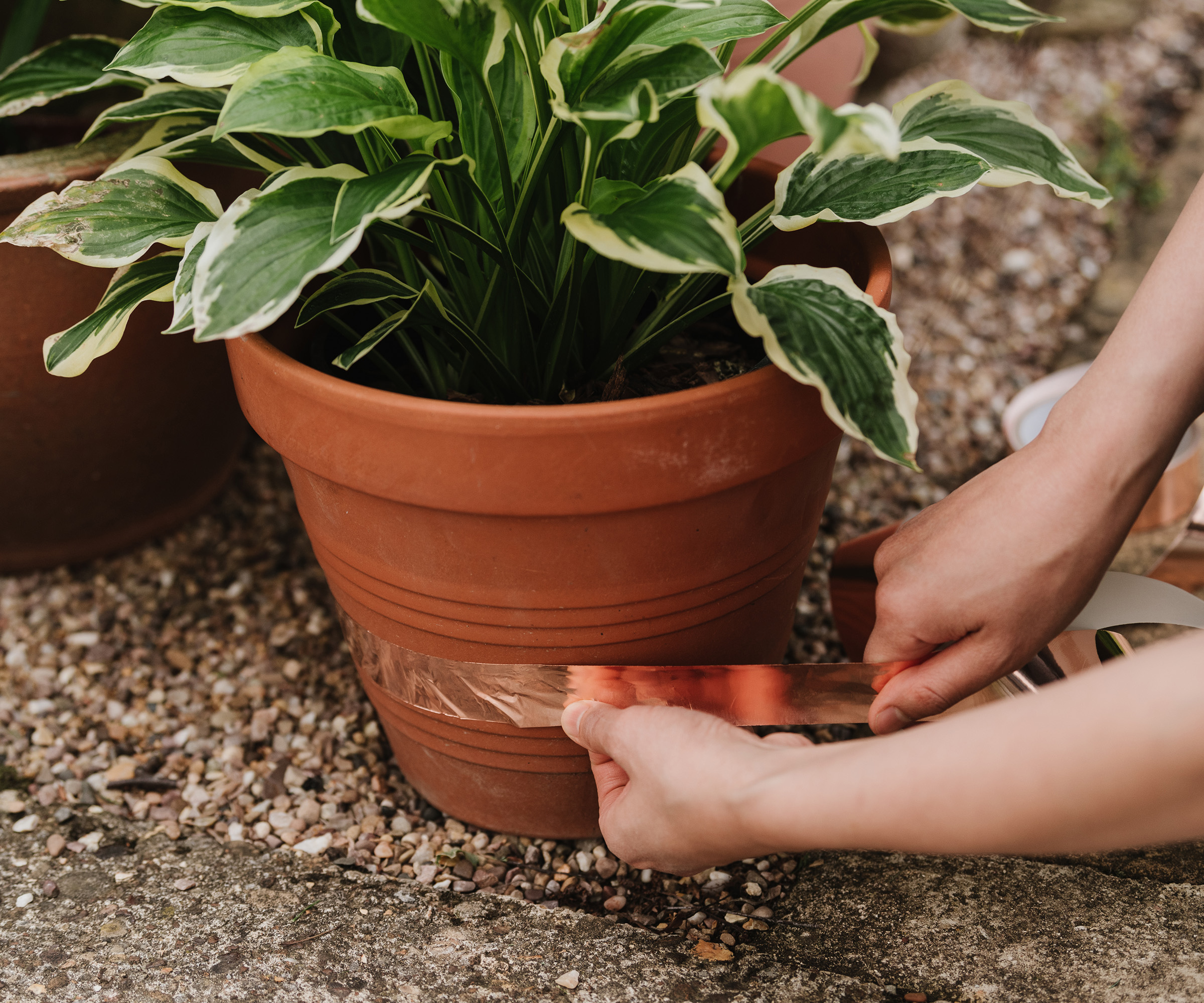

John is the technical training manager at Pelsis Group, delivering innovative pest control and garden care products. He is a pest control professional and graduate biologist.
2. Sprinkle chemical-free barrier pellets
"Last year saw the ban of widely used slug pellets (metaldehyde pellets), which were deemed a huge danger to birds and other mammals, following years of campaigning from various groups," explains John Stewart.
However, there are safer barrier pellets available which won't harm wildlife. Some like Bio Barrier Slug & Snail Pellets at Robert Dyas, will even break down to release nutrients into the soil.
"Green Protect’s pellets are a completely humane repellent. They form an eco-friendly garden idea and chemical-free barrier as a quick and effective solution for keeping slugs and snails at bay. Simply place them around the plant's stem to form a physical barrier, which will make it difficult for pests to get through," says John.
Try Green Protect Slug & Snail Barrier Pellets at Amazon.
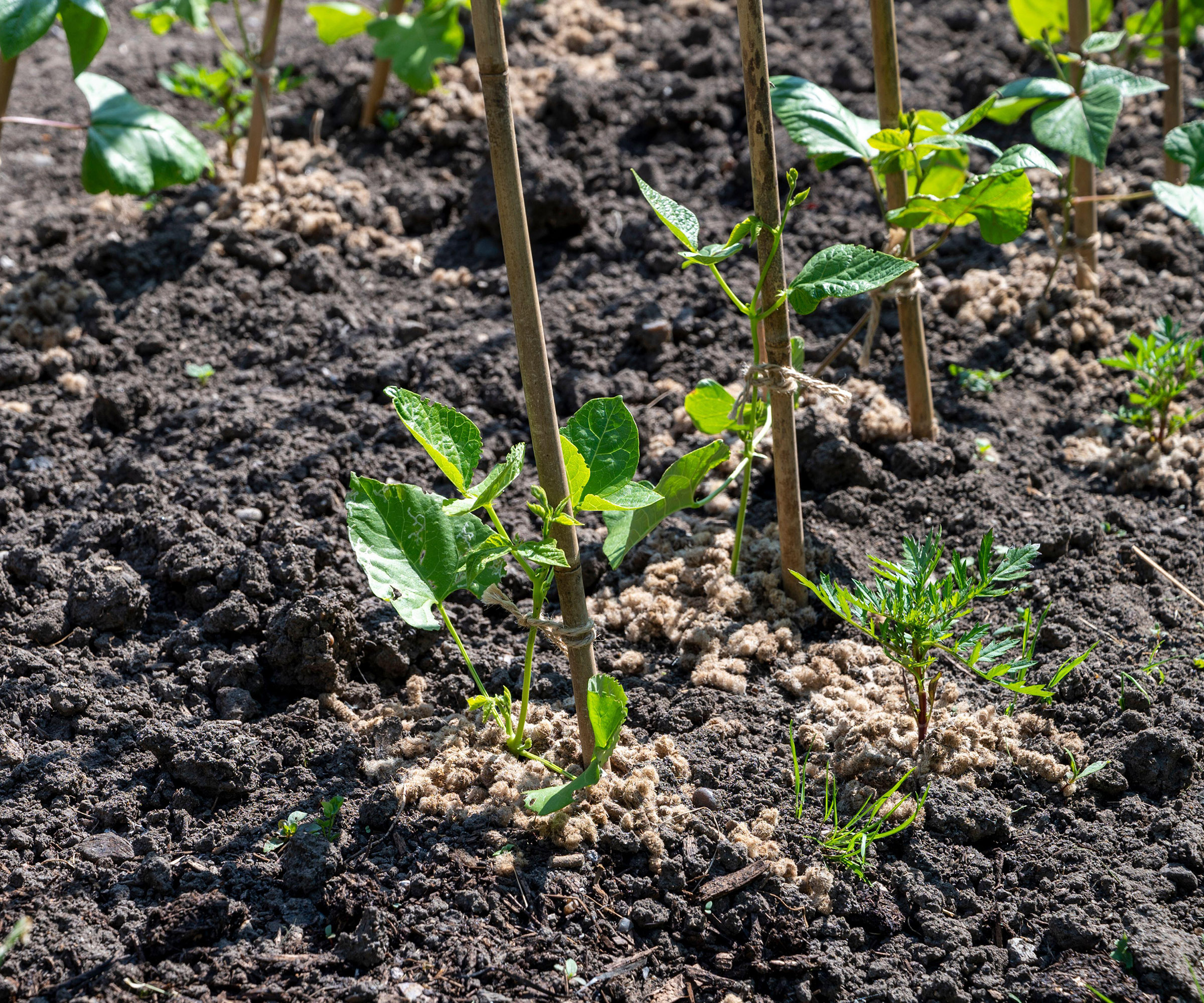
3. Try slug nematodes
"Slug nematodes are another effective biocontrol method. These microscopic worms parasitize slugs by entering their bodies and causing fatal infections. When applied to soil, nematodes target slugs specifically without harming beneficial organisms, making them a safe and natural option for reducing slug populations," says Ryan Fowley, pest removal expert at Excel Pest Services.
Be aware when you're buying slug nematodes that they are living organisms and will have a short shelf life (around 2 weeks). So buy them if you plan on using them fairly immediately otherwise they won't be effective. Try Gardening Naturally Slug Nematodes at Amazon.
Nematodes naturally occur in the soil anyway, applying them merely increases the amount your slugs are exposed to. They are safe for wildlife, children and pests, and can be applied using a standard watering can, or a special nematode applicator.
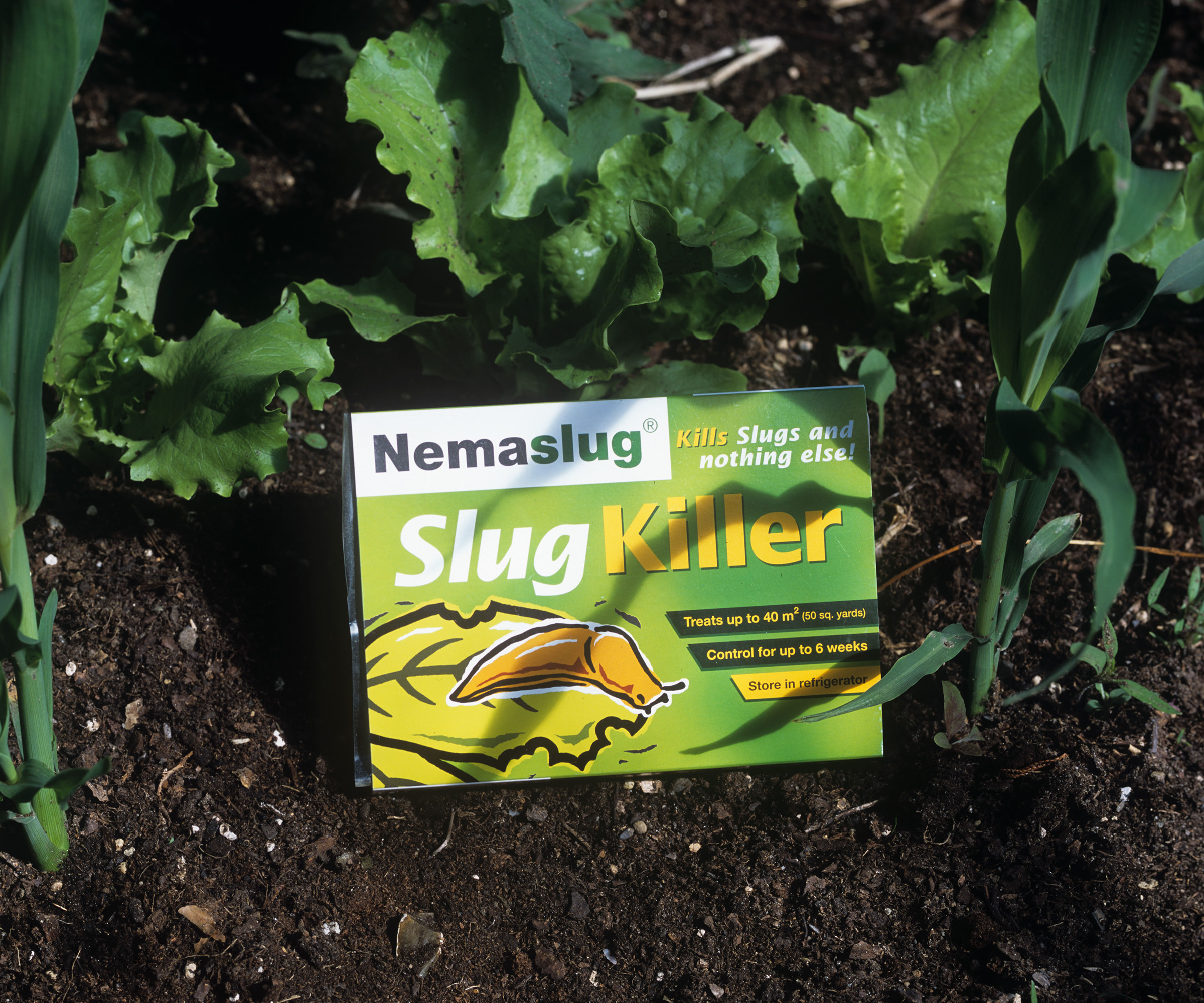
4. Lay beer traps around plants
Beer traps are a homemade option for gardeners wishing to keep slugs away from their plants.
"Planting a container such as an old ice cream tub containing 2 to 3 inches of beer, in your soil can be the perfect solution to getting rid of slugs and snails - keeping them away from your house and home, as well as plants," says Simon Wardle, garden and patio expert at Armstrong Cheshire Patios.
Simon advises: “Make sure you keep the beer topped up as this trick works best with fresh beer. This works for your patio and decking ideas, too, although if you’re not burying it in the soil, try a low bowl, such as a walled plate."
It's the yeast in the beer which attracts snails and slugs, if you are looking for a humane method be advised that the idea here is that slugs and snails drown in the beer trap.
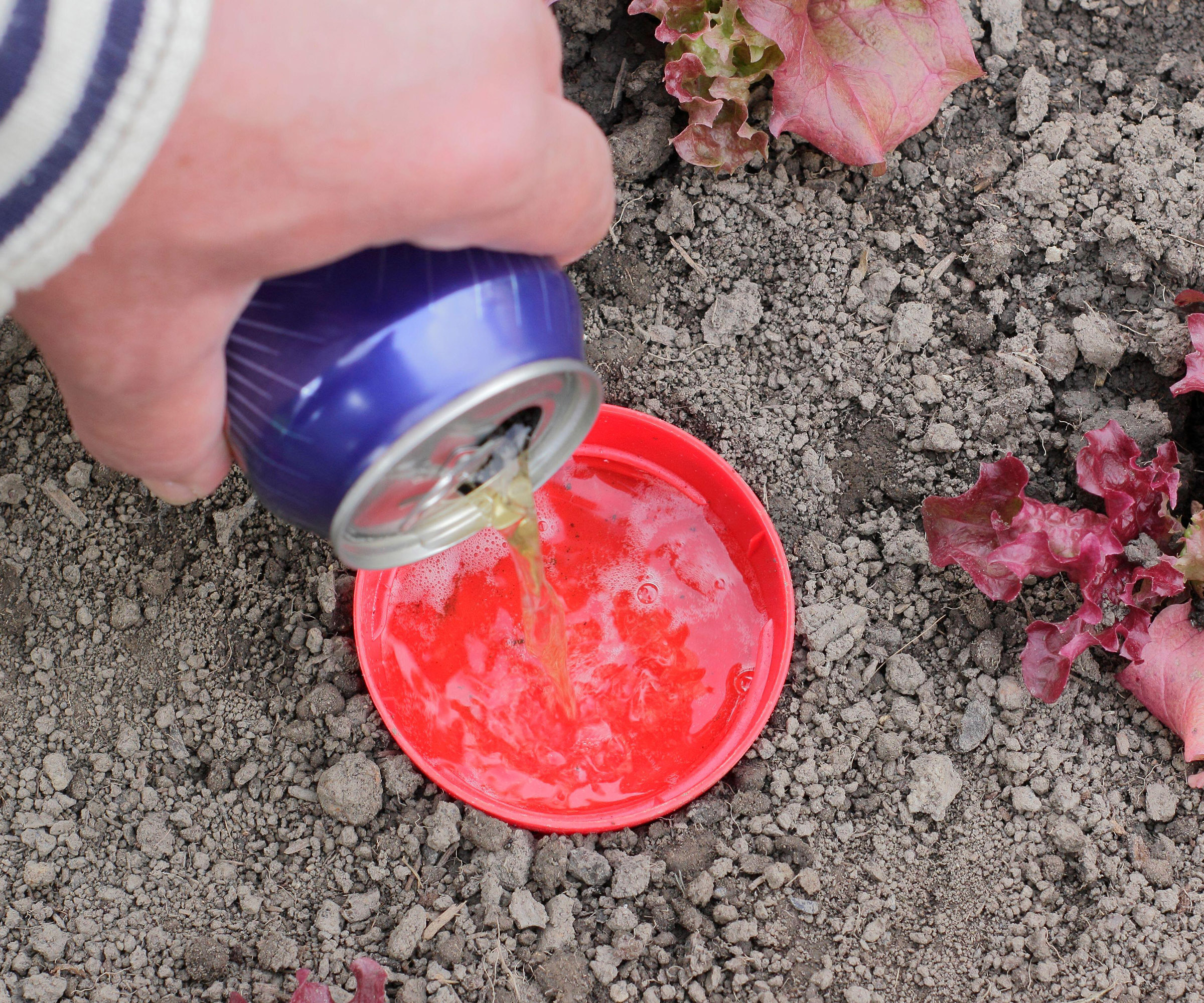

Armstrong Cheshire, an online timber, patio and building materials supplier. Simon is passionate about helping homeowners and professionals achieve their dream outdoor spaces more affordably, and is an expert on all aspects of patio, paving and decking
5. Encourage natural predators
For those that prefer completely organic gardening approaches John Stewart advises cultivating an environment that is friendly to natural slug predators like hedgehogs, toads, frogs and ground beetles. This is a surefire way to deter any slimy pests.
"Installing a pond, wild niches (twigs, logs, dead plants etc.), dry stone garden walls, hedges or shrubs will also help attract wildlife to your garden, and keep slugs and snails well away from your prized plants," says John.
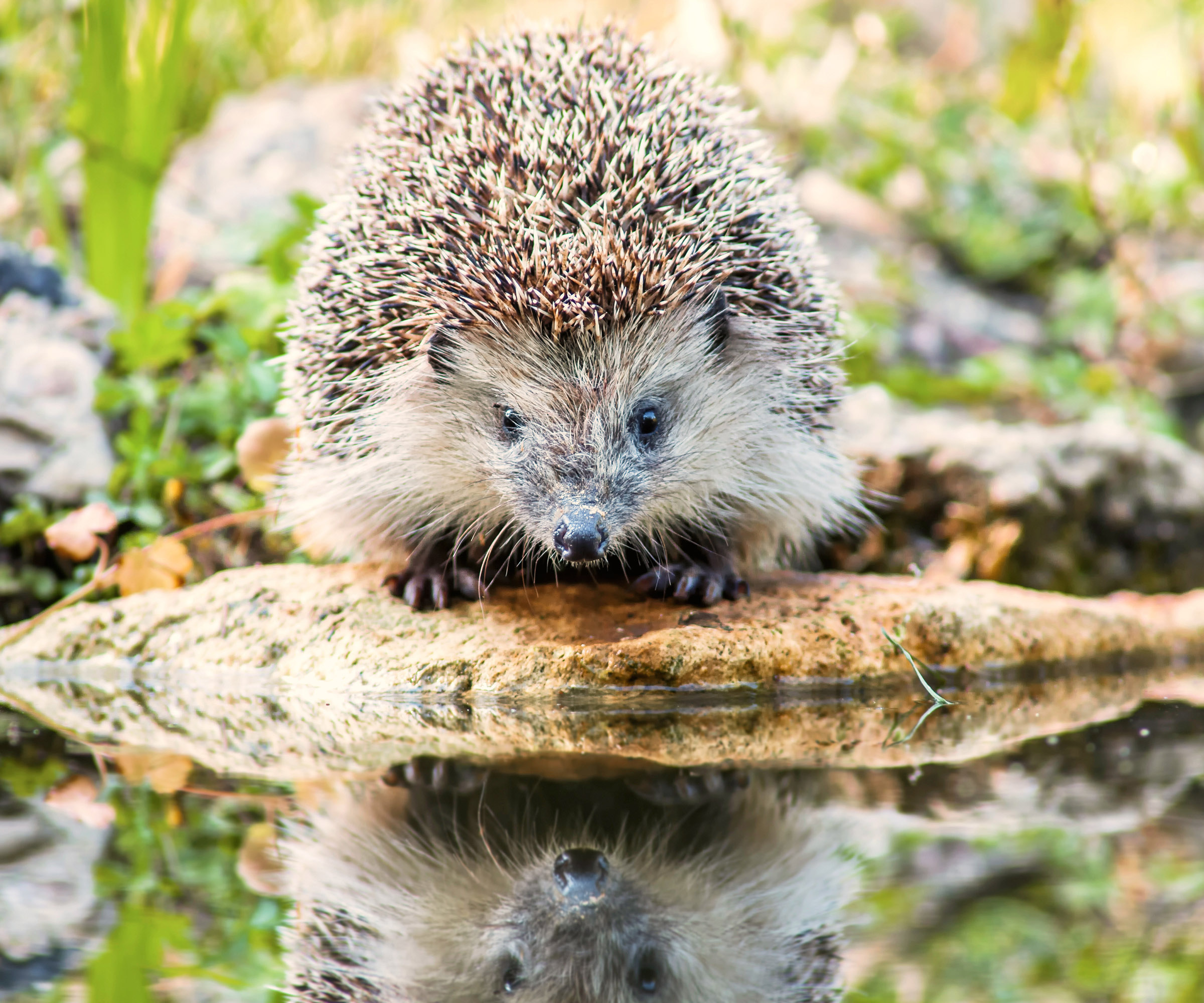
6. Try growing slug repellent plants
There are some garden plants, like the shade plants hostas, which slugs will absolutely devour. But there are also those that they tend to leave alone. So if you're fed up with finding holes in your leaves then try growing something that, won't attract and may even repel these slippery pests.
“Mint and peppermint plants have pest-fighting properties. Lavender is another highly scented plant that slugs will avoid, like mint, it can be most planted or purchased in a patio-friendly pot straight from garden centres. Sage is another plant that can ward off lots of pests including snails, rats and mosquitos - who once again hate the strong pungent smell," says Simon Wardle
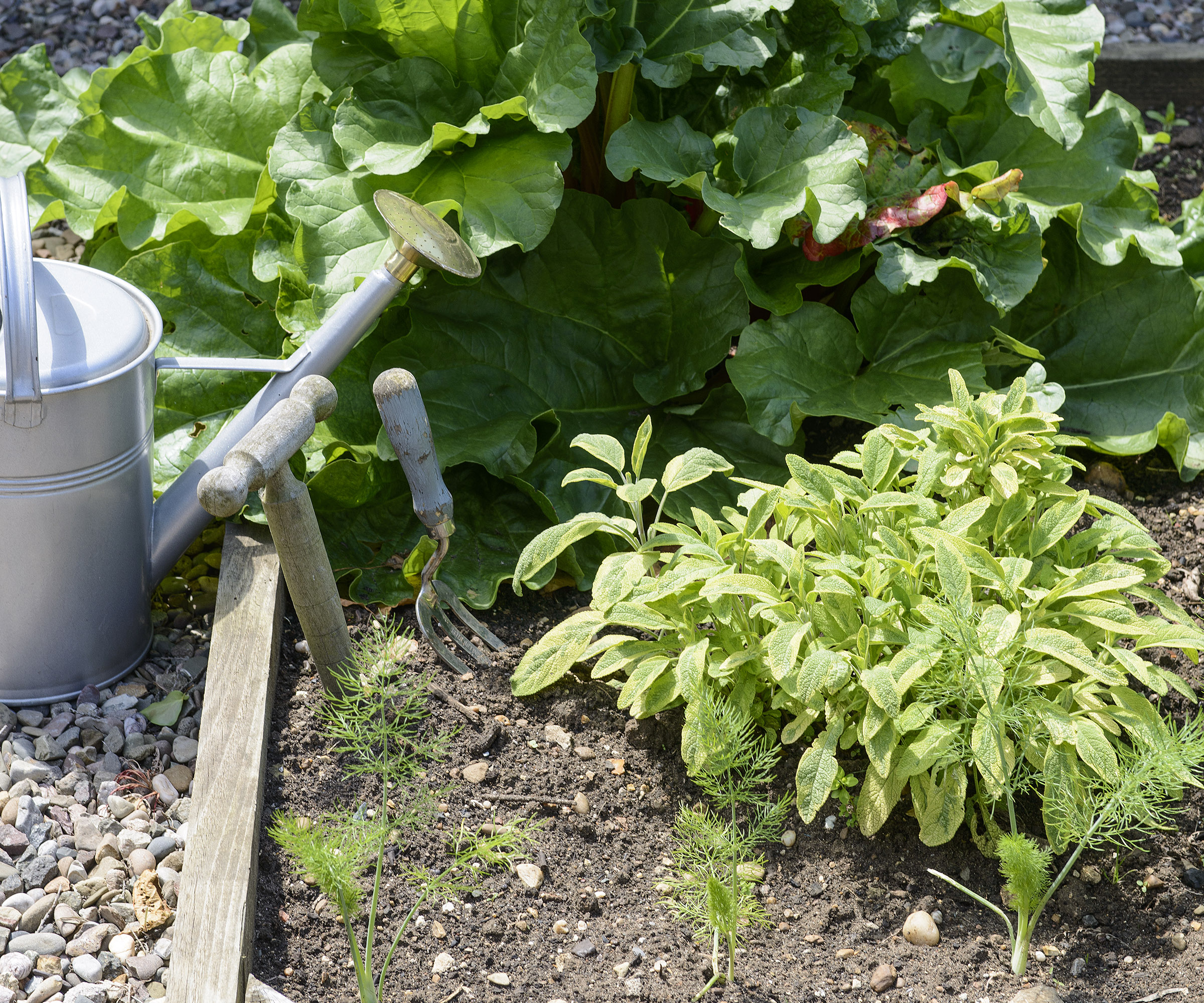
7. Remove them manually
“Going on a slug and snail hunt in your garden is a very humane way to dispose of any critters that may have infiltrated your garden," says Daniel Scholfield, garden expert at The Expert Gate Company
"Simply go out on a humid night with a torch and collect them all up in a bucket. Relocate them to another part of your garden where they won’t cause much trouble. Add them to your compost bin, or take them out to the great outdoors," says Daniel.
8. Add gritty materials to the soil around plants
“One method to naturally deter slugs from your patio planting is to sprinkle sand or gravel down to create a rough surface for them to travel on. This makes an uncomfortable surface for them, so often deters them from your space," says Steven Walley, patio and paving expert from London Stone.
The same goes for ash, coffee grounds and egg shells, which can be added to the soil around plants.

John Clifford is a director of Gardenstone, a leading garden landscaping retailer based in the UK. With over 30 years in the gardening industry and continual work alongside The National Trust, John has amassed an extensive range of gardening and planting knowledge.
FAQs
What kills slugs naturally?
"Natural predators will help get rid of slugs in your garden. Birds, hedgehogs and frogs are three examples of good slug natural predators that will kill and feed on slugs. Encouraging these creatures into your garden can help to eliminate a high number of slugs, although this method of course isn't guaranteed," says garden expert at Gardenstone John Clifford.
Slug Nematodes are effective at killing slugs without the use of harmful chemicals. "You can purchase these in packs, and it kills the slugs. Although 'naturally' might not be the right term here as it is up to human choice that the slug dies," says John.
Why is my garden full of slugs?
"Slugs love moisture, plants, organic matter, and shade. If your garden has a lot of this, then it's likely that this is why they're flocking. They feed on organic matter and plants, hide in shady areas and of course, as the UK gets a lot of rain, they thrive in damp conditions," says garden expert John Clifford.
If your garden is particularly damp, as well as an influx of slugs and snails, you may have other issues such as waterlogged soil too. Take a look at our guide on how to fix waterlogged soil.
Get the Homebuilding & Renovating Newsletter
Bring your dream home to life with expert advice, how to guides and design inspiration. Sign up for our newsletter and get two free tickets to a Homebuilding & Renovating Show near you.

Teresa was part of a team that launched Easy Gardens in 2018 and worked as the Editor on this magazine. She has extensive experience writing and editing content on gardens and landscaping on brands such as Homes & Gardens, Country Homes & Interiors and Living Etc magazine. She has developed close working relationships with top landscape architects and leading industry experts, and has been exposed to an array of rich content and expertise.
In 2020 Teresa bought her first home. She and her partner worked alongside architects and builders to transform the downstairs area of her two bedroom Victorian house in north London into a usable space for her family. Along the way she learned the stresses, woes and joys of home renovation, and is now looking to her next project, landscaping the back garden.
